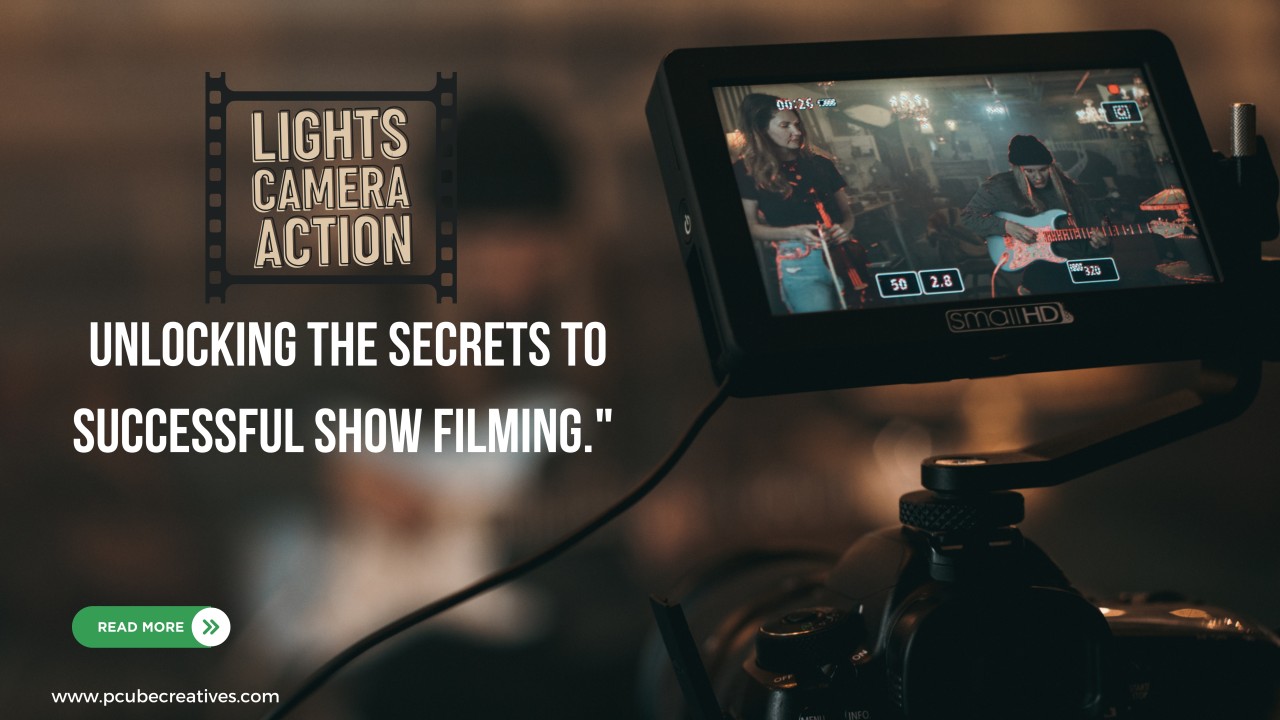 25, march 2024
25, march 2024
Lights, Camera, Action! Unlocking the Secrets to Successful Show Filming.
Unlocking the secrets to successful show filming involves a blend of creativity, technical expertise, and strategic planning. Whether you're capturing a live performance, producing a television series, or filming a web show, understanding the fundamentals of the process is crucial for delivering captivating content that resonates with your audience. In this guide, we'll delve into the essential steps and techniques to help you elevate your filming game and bring your vision to life on screen.

1. Pre-production Planning:
Before diving into filming, meticulous planning is essential for laying the groundwork for a successful shoot. This stage involves conceptualizing the show, developing a script or outline, scouting locations, assembling the cast and crew, and creating a detailed production schedule. Thorough pre-production sets the stage for smooth execution during filming and ensures that all aspects of the production are well-coordinated.

2. Equipment Selection and Setup:
Choosing the right equipment is paramount to achieving high-quality footage. Depending on the nature of the show, you'll need to select cameras, lenses, lighting equipment, microphones, and other accessories that align with your creative vision and technical requirements. Once the equipment is acquired, proper setup and calibration are essential to ensure optimal performance during filming. Conducting test shoots and rehearsals can help fine-tune the setup and address any potential issues before the actual shoot.

3. Capturing Engaging Footage:
The filming process is where the magic happens, as you bring your vision to life through the camera's lens. Paying attention to composition, framing, camera movement, and lighting is crucial for creating visually compelling footage that draws viewers in. Whether you're shooting indoors or outdoors, in controlled environments or on location, adaptability and creativity are key as you navigate the challenges and opportunities presented by each scene.

4. Directing and Managing the Production:
Effective direction and management are essential for keeping the production on track and ensuring that everyone is working towards a common goal. As the director or producer, clear communication, leadership, and decision-making skills are paramount for guiding the cast and crew, resolving conflicts, and maintaining momentum throughout the shoot. Collaboration and teamwork are integral to the success of the production, so fostering a positive and supportive environment is essential for maximizing creativity and productivity on set.

5. Post-production Editing and Enhancement:
Once filming is complete, the post-production phase involves editing and refining the footage to create a cohesive and polished final product. This includes tasks such as selecting the best takes, adding visual effects and graphics, enhancing audio quality, and color grading. Post-production software and tools offer a wide range of capabilities for manipulating and enhancing footage, so familiarity with these tools is essential for achieving professional results. Attention to detail and a keen eye for storytelling are crucial during this stage, as the editing process plays a significant role in shaping the overall narrative and impact of the show.

conclusion
Filming a show is a multifaceted process that requires careful planning, technical expertise, and creative vision. Following these essential steps and techniques can elevate your filming game and produce captivating content that resonates with your audience. Whether you're a seasoned professional or a novice filmmaker, embracing the challenges and opportunities of show filming can lead to rewarding experiences and memorable productions. So, grab your camera, gather your team, and let your creativity soar as you embark on your next filming adventure.

